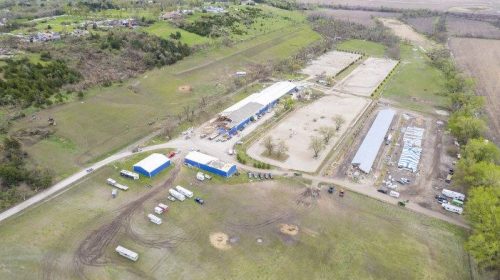A horse who recently was euthanized in Montgomery County, Maryland, had equine herpesvirus myeloencephalopathy, the neurologic form of EHV-1, Maryland state veterinarian Dr. Michael Odian said Thursday. The horse, who was from a 44-horse barn in the county, initially tested positive for EHV-1 on March 9.
“The index horse was sent to the Equine Medical Center (EMC) in Leesburg, Virginia, for treatment and was later euthanized due to complications,” the Maryland Department of Agriculture said in a March 16 statement confirming the EHV-1 diagnosis. “Two other horses from the same barn have been sent to EMC for diagnosis and are currently under treatment.”
On Thursday, Odian confirmed that the index horse was diagnosed with EHM but said in a statement that his department is “not at liberty to release the diagnosis of other horses at this time.” However, the national Equine Disease Communication Center database lists three confirmed EHV-1 cases from the barn in a disease alert posted to its website March 16.
“The Montgomery County farm has been placed on a hold order by the department, prohibiting movement on or off the farm until any exposed horses have been cleared for release,” the MDA statement said. “The horse was previously housed in an isolated barn with 44 other horses. The veterinary practitioner and stable are providing follow-up care to the horses on the farm. Possible links to the positive EHV-1 equine are actively being investigated.”
ADVERTISEMENT
An MDA spokesperson did not explain why the department did not publicly confirm the positive case until 11 days after the horse tested positive.
The MDA is asking Maryland horse owners to monitor their animals carefully for signs of EHV-1, including elevated temperature or neurologic symptoms, and to contact their veterinarian to arrange testing should horses display any of these symptoms. Veterinarians are required to report equine neurologic syndrome to the department by calling the Animal Health Program at (410) 841-5810.
EHV-1 Resources:
• Learn more about EHV-1 and EHM from the EDCC factsheet.
• Keep up with EHV-1 and other reportable disease outbreaks nationwide with the EDCC disease alert database.
• Learn more about biosecurity best practices recommended by USEF.
• Read all of the Chronicle’s coverage of the 2022 California EHV-1 outbreak.














